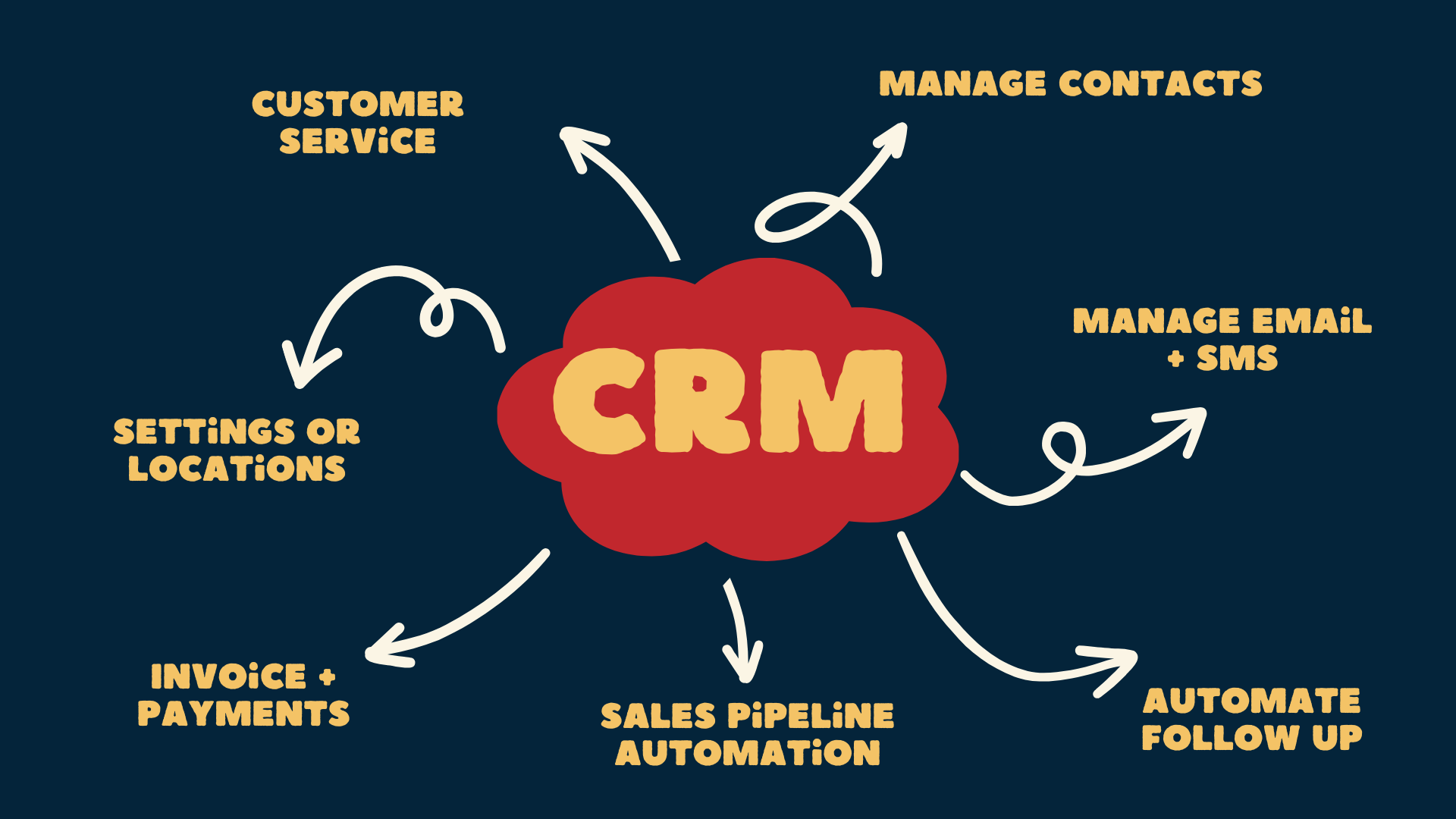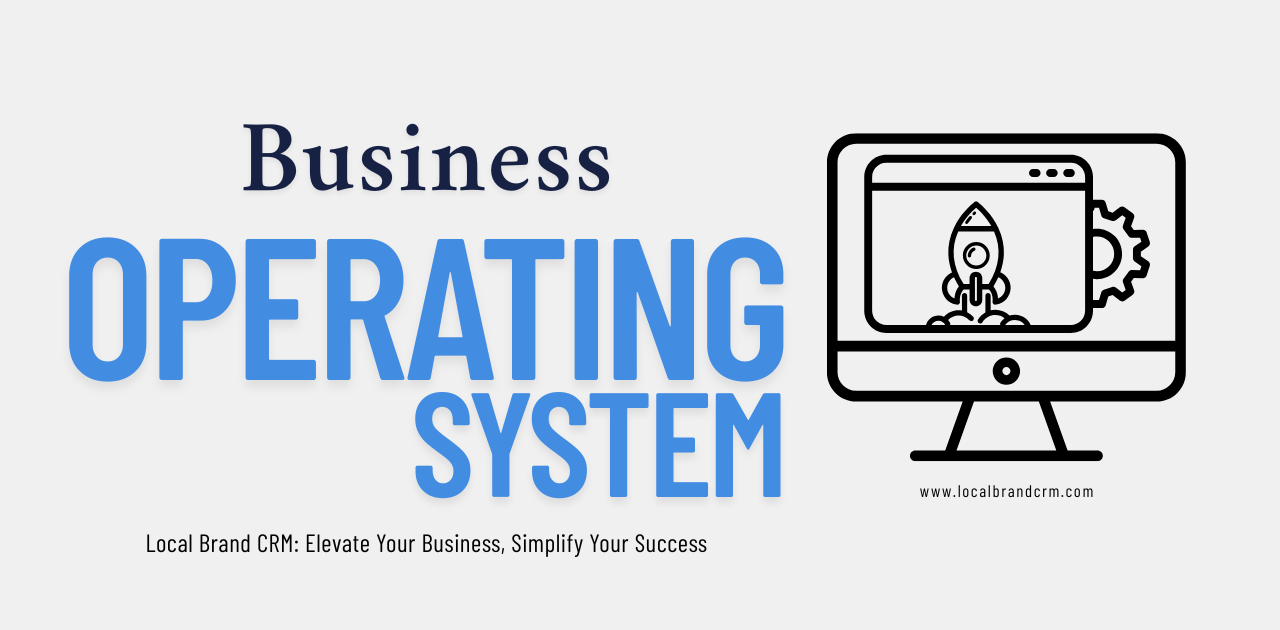CRM as a Business Operating System: Optimizing Processes and Driving Growth
CRM has evolved into a comprehensive business operating system that integrates and optimizes processes across marketing, sales, service, and operations.
Introduction
In today’s fast-paced digital landscape, businesses are realizing that Customer Relationship Management (CRM) software is no longer just a sales or customer support tool. It has evolved into a comprehensive business operating system that integrates and optimizes processes across marketing, sales, service, and operations. When leveraged effectively, CRM software can unify data, streamline workflows, and provide actionable insights that fuel sustainable growth.
As companies strive for efficiency and better customer engagement, using CRM as the central hub for managing interactions, automating repetitive tasks, and aligning cross-functional teams becomes essential. By functioning as a business operating system, CRM platforms provide a structured, automated, and scalable foundation that supports every stage of the customer journey, from acquisition to retention.
This article explores how CRM systems can optimize business processes, drive customer-centric growth, and serve as the engine behind successful organizations. We’ll also look at specific CRM benefits such as sales automation, marketing automation, customer service improvement, and business process optimization, each contributing to operational excellence and market competitiveness
CRM as the Core Business Operating System
A business operating system refers to a structured platform that manages, automates, and synchronizes key functions across an organization. Modern CRM software has become the centerpiece of this system, offering integrated solutions that support customer management, sales tracking, marketing execution, and service delivery in one unified interface.
CRM platforms such as Salesforce, HubSpot, and Microsoft Dynamics now act as operational backbones, connecting various departments and ensuring seamless information flow. By consolidating customer data and automating core processes, these CRMs reduce manual effort, minimize errors, and empower teams with real-time insights.
Using CRM as a business operating system allows companies to automate customer follow-ups, manage complex sales pipelines, and deliver personalized marketing campaigns at scale. Businesses can also set up intelligent workflows that trigger actions based on customer behaviors, such as sending an email after a demo request or escalating service tickets based on priority.
Ultimately, positioning CRM as the operational center transforms how businesses interact with customers, manage teams, and achieve performance targets.
Sales Automation: Streamlining Sales Processes for Growth
One of the most significant CRM benefits is sales automation. By automating repetitive sales tasks, businesses can improve productivity, reduce human error, and enable sales teams to focus on closing deals. Sales automation within CRM systems typically includes automated lead assignment, follow-up reminders, quote generation, and contract management.
For example, when a prospect completes a contact form, the CRM can automatically assign the lead to the appropriate sales representative based on geographic territory or product interest. The system can also schedule follow-up tasks, send personalized email sequences, and update deal stages in real time. This ensures that no opportunities are lost due to manual oversight or delayed responses.
Moreover, sales automation enables businesses to track pipeline health, forecast revenue, and analyze sales performance with greater accuracy. By removing manual bottlenecks, CRM-driven sales processes become more predictable, scalable, and efficient, directly contributing to faster growth and improved conversion rates.
Marketing Automation: Enhancing Campaign Efficiency and Customer Targeting
CRM-integrated marketing automation empowers businesses to execute targeted campaigns with precision and consistency. It allows marketing teams to segment audiences, automate email workflows, manage lead nurturing processes, and track campaign performance within a single platform.
With marketing automation, businesses can design customer journeys that trigger personalized emails, SMS messages, or notifications based on specific actions, such as downloading an ebook or attending a webinar. This level of automation improves customer engagement, increases lead-to-sale conversion rates, and reduces manual marketing workloads.
CRM platforms also provide detailed analytics that help marketers understand campaign ROI, optimize messaging, and refine targeting strategies. By leveraging these insights, businesses can deliver timely, relevant content that resonates with customers and drives higher engagement.
Integrating sales and marketing automation within a CRM system ensures both teams work with synchronized data, creating a seamless lead management process that accelerates growth and improves collaboration.
Customer Service Improvement through CRM Integration
Another key advantage of CRM as a business operating system is customer service improvement. Modern CRM platforms provide service teams with instant access to customer histories, previous interactions, and issue resolutions, allowing for more personalized and efficient support.
With CRM integration, businesses can set up automated ticketing systems, self-service portals, and knowledge bases to empower customers and streamline service delivery. Automated workflows can route support tickets to the appropriate department, prioritize urgent cases, and send timely updates to customers regarding their inquiries.
CRM systems also facilitate proactive service by enabling businesses to monitor product usage, detect potential issues, and initiate support outreach before a customer experiences a problem. This proactive approach strengthens customer relationships, boosts satisfaction, and enhances retention.
"CRM-driven customer service isn’t just about resolving issues; it’s about creating seamless, memorable experiences that build long-term loyalty."
By consolidating service data within the CRM, companies can continuously improve their support processes, track key service metrics, and ensure consistent service quality across all touchpoints.
Business Process Optimization with CRM
CRM platforms are powerful tools for business process optimization . They help businesses map, analyze, and improve workflows by providing visibility into every stage of customer interactions and internal operations. With customizable dashboards and reporting tools, CRM systems enable leaders to identify process inefficiencies and implement data-driven improvements.
For example, a CRM can highlight bottlenecks in the sales funnel, show where leads are dropping off, or identify slow response times in customer support. Armed with this data, businesses can streamline their processes, reassign resources, and automate manual tasks to improve performance.
CRM systems also allow companies to establish standardized operating procedures, ensuring consistency and compliance across departments. Workflow automation reduces the chances of human error, speeds up approvals, and enhances collaboration between teams.
Additionally, CRM-driven process optimization contributes to cost savings by reducing redundant activities and improving resource allocation. Businesses that fully integrate CRM into their operations can achieve faster cycle times, higher productivity, and better scalability, positioning themselves for long-term success.
Conclusion
Embracing CRM software as a business operating system is a transformative strategy that enables businesses to optimize processes, automate critical functions, and drive sustainable growth. Modern CRM platforms go far beyond customer management—they serve as the central nervous system that powers marketing, sales, service, and operations in a unified, data-driven environment.
Through features like sales automation, marketing automation, customer service improvement and business process optimization, CRMs can significantly enhance operational efficiency and customer engagement. By integrating these capabilities, businesses can achieve real-time visibility, seamless workflows, and predictive insights that fuel smarter decision-making.
For companies aiming to scale, increase profitability, and deliver exceptional customer experiences, leveraging CRM as a business operating system is no longer optional—it’s essential. Organizations that embrace this approach will be better positioned to adapt to changing market dynamics, meet evolving customer expectations, and outperform competitors.
Start by assessing your current processes, selecting a CRM platform that aligns with your strategic goals, and integrating key automation features that will drive efficiency and growth. By doing so, you can transform your CRM into the powerful engine that propels your business forward.



